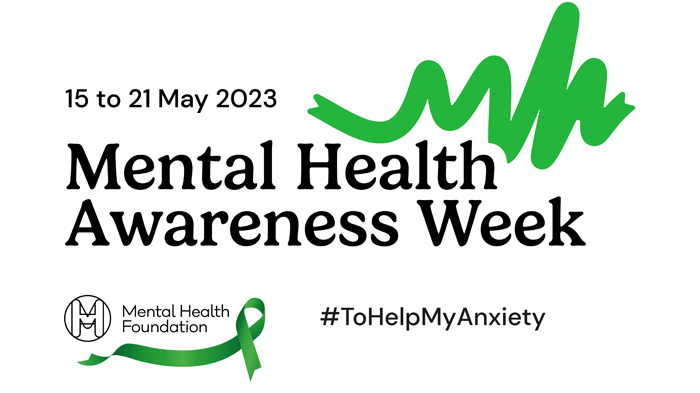In News
Follow this topic
Bookmark
Record learning outcomes
The word ‘anxiety’ in itself can sometimes muster a worried feeling within the gut, and everyone may experience a level of stress, worry, and even anxiety at some point in their lives. But it couldn’t be truer that a problem shared is a problem solved, so anxiety, let’s talk about it.
What is anxiety?
Anxiety can have both a mental and physical impact on the body. Many people who have anxiety may experience symptoms of increased heart rate, loss of appetite and headaches – as well as mental stress and worry. “Anxiety might make you feel tense or nervous, find it hard to relax, feel tearful or have problems sleeping and concentrating,” according to the Mental Health Foundation (MHF). “Friends or family might notice you are more irritable than usual, or more withdrawn. Or perhaps you seem fine on the outside but feel panicky inside.”
State of affairs
Currently, more than a third of adults feel anxious about their financial situation, especially as the UK continues to face a cost-of-living crisis, according to the Foundation.
Indeed, anxiety levels amongst the population increased throughout the pandemic and have not yet dropped to pre-pandemic levels, according to the latest report from the MHF, Uncertain times: Anxiety in the UK and how to tackle it.
In March 2023, the Foundation conducted an online survey, with Opinium, of 6,000 adults in the UK and found that nearly three-quarters of the population (73 per cent) had felt anxious at least sometime in the previous two weeks, with one in five people (20 per cent) anxious most or all of the time.
Some groups were found to be more affected than others, with nearly all young people 18-24 years (86 per cent) having felt anxious in the previous two weeks and for over half, 58 per cent, this had stopped them undertaking day-to-day activities. Other groups more likely to report feeling anxious were:
- Single parents: 89 per cent
- LGBTQ+ people: 89 per cent
- Carers: 84 per cent
- 18 to 34-year-olds: 86 per cent
- People from a minority ethnic community: 84 per cent
- People with a long-term physical health condition (LTC): 82 per cent.
How to cope
As a result of anxiety’s current impact on the UK population, the MHF has chosen to make it the focus of Mental Health Awareness Week 2023. Starting with how to cope.
Coping with any mental health issue varies from person to person, but there are some things that can help. The MHF suggest getting active, out into nature, practising breathing techniques, talking about your feelings to family or loved ones and of course, getting profession help to tackle worries. The Foundation has some top recommendations on how to cope here – which pharmacy teams can use themselves or recommend to customers.
Work to be done
But alongside people trying to help themselves, the MHF also wants people to know, they are canvassing for changes that they hope can reduce the anxiety of the nation. “Anxiety isn’t just something we can overcome on our own,” it wrote. “So much of what may trigger anxiety is not within our control. This is why, during Mental Health Awareness Week, we’ll also be talking to politicians and decision-makers about what can be done as a nation to support good mental health.
“While causes of anxiety are complex, financial worries, social isolation, social pressures and discrimination can all play a part. And because of this, local and national politicians should be looking at measures such as income support to reduce financial stress, provision of good quality housing, strong legislation to prevent bullying, harassment and discrimination, and ensuring communities are equipped with the services and facilities we need to live well and help protect everyone’s mental health.” We are looking forward to seeing the outcome of this.
Get involved
Finally, how pharmacy teams can get involved!
“We’ve chosen anxiety as the Mental Health Awareness Week theme this year to kickstart a nationwide conversation,” said Alexa Knight, director of England at the MHF. “Encouraging people to share their own experiences and any helpful ideas on how they manage anxiety.” And we know that community pharmacy is a great place to start such conversations.
There are plenty of ways for pharmacy teams to get involved from free resources to download and share online or put up in the pharmacy, to wearing a green ribbon or just wearing green! This can initiate conversations about mental health and anxiety in the pharmacy, whether it be with your customers or your colleagues. Pharmacy teams can also join the conversation online with #ToHelpMyAnxiety.
Make sure you check out our wide range of mental health learning on our website too, from CPD modules to podcast, we aim to help you feel confident when discussing mental health in the pharmacy.

